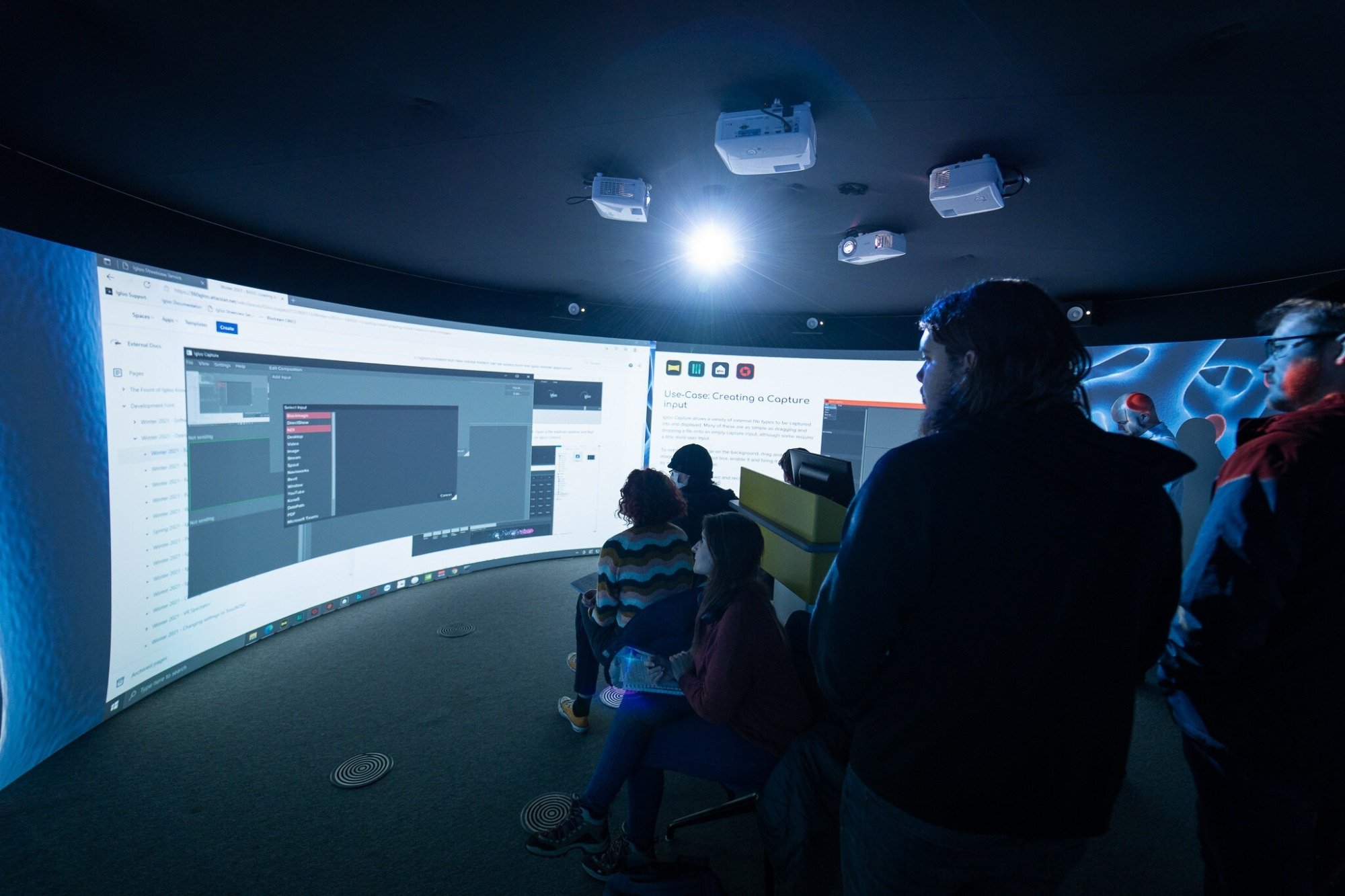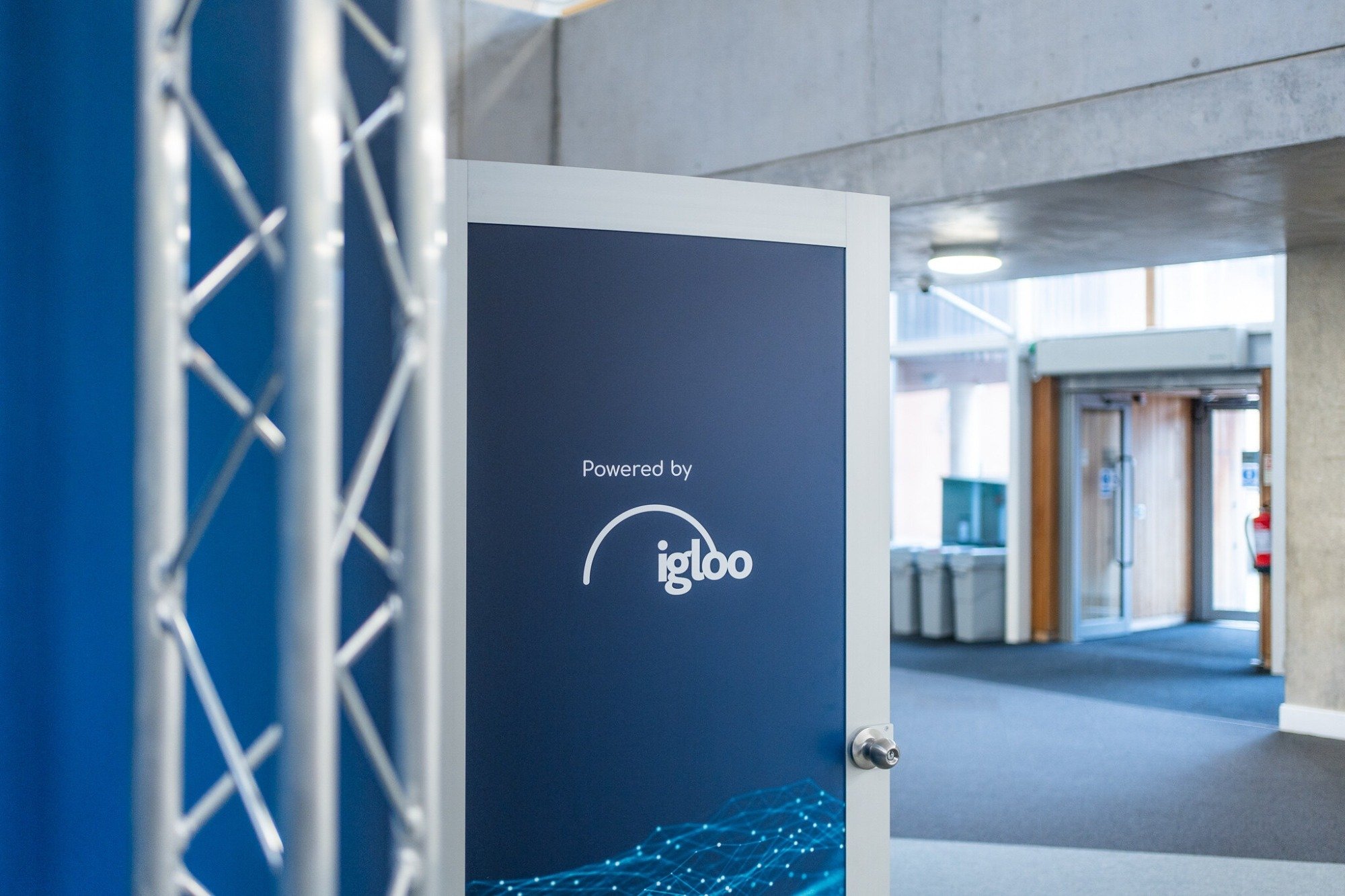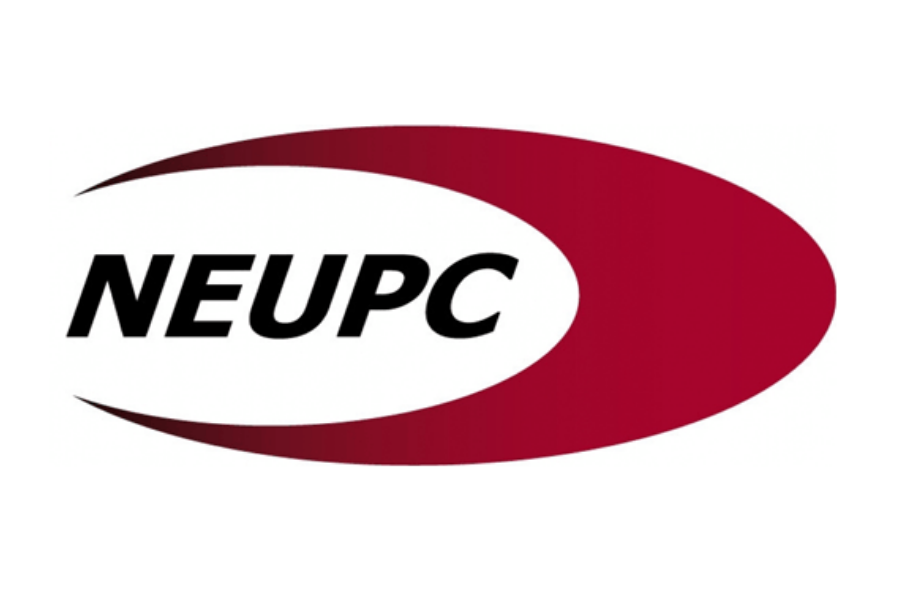
Immersive Learning with Igloo at University of Sunderland
Giving students the opportunity to explore new ways of learning
Client:
University of Sunderland
Project
NEUPC member the University of Sunderland had begun investigating immersive technology for these facilities and in its search came across Igloo. And, while it explored other options, such as flat screens on walls to create an immersive display, or VR headsets, Igloo was chosen as a tried-and-tested technology, that’s used by industry and enterprise all over the world.
The Client
The University of Sunderland offers transformational experiences to talented students from all backgrounds. And key to its offering is developing highly-skilled, ready-for-work graduates, through career focused teaching and learning. As part of a major revamp, funded by the European Regional Development Fund, it invested in a 6-metre Igloo cylinder to form part of its Digital Incubator space. The cylinder is equipped with 360° immersive projection, surround sound, and is powered by an Igloo Immersive Media Player loaded with Igloo Enterprise software. It provides students with the skills to go straight out to employment, the experience of using technology used in industry, the opportunity to practise collaborative work and the chance to get to grips with new and exciting technology.
Key Features
-
The space provides students with industry-level technology, which in turn prepares them for the world of work.
-
Students have enjoyed learning and presenting in a unique and engaging way. It’s brought them back together after months of remote learning
-
Staff and students noted how easy they found using the Igloo. Students loved coming up with new ways of using the space.
-
The Igloo has been well-received internally and externally at the university. It has fast become an impressive and valuable part of the Faculty of Technology.
The Situation
The University needed a space for students to gain valuable real-world experience. The University had been investing heavily in its Faculty of Technology, as well as in its Digital Incubator space. The Digital Incubator is funded by the European Regional Development Fund (ERDF) and has already worked with over 100 students, over half of whom have gone on to set up their own businesses. With funding from the ERDF under its belt, the University was looking for new and innovative equipment to provide students with enhanced immersive experiences within its courses. The University began investigating immersive technology for these facilities and in its search came across Igloo. And, while it explored other options, such as flat screens on walls to create an immersive display, or VR headsets, Igloo was chosen as a tried-and-tested technology that is used by industry and enterprise all over the world.
The Solution
It was decided that a 6-metre immersive cylinder powered by the Igloo Enterprise software would be installed to create the needed space. Students have a wealth of capabilities at their fingertips, from working with simple 360° videos or photos, to working with game engines such as Unity via Igloo Realtime, and the whole of the internet available in an immersive space via Igloo Web. As with all Igloo spaces, it is driven by the Immersive Media Player, enabling the University to house a whole host of content in its Igloo. This particular installation uses the IMP I, which is great for immersive storytelling and room-scale presentations. The look and feel The Igloo forms an integral part of the Digital Incubator, a high tech computing environment with strong links to software companies and a constant exchange of ideas and people. It was important to the University that the Igloo became a centrepiece for the Faculty of Technology, so an existing staircase was removed to make way for the Igloo to sit directly opposite the entrance. And, with bold branding, the Igloo makes for an incredibly eye-catching installation that no one misses when they set foot in the building.

The Use Case
Once the Igloo was installed, eight groups of eight students each set out on projects that would make use of the Igloo and its many capabilities - the first use of the system at Sunderland. Half of the groups worked on an interactive museum experience and the other half on an interactive learning experience. These projects enabled the students to develop and test interactive content and its impact. As part of the projects, Igloo linked up with the students throughout the module, which culminated in a final showcase at the end of the term. In this way, the students began to make links with industry and to get a feel for how development is in the real world.
“It’s the talking point of the faculty and allows students to think about how they want to engage with each other and lead their education.”

Why Igloo?
Giving students real world experience It’s of utmost importance for the University to provide students with the tools used in industry, to send confident graduates out into the world of work. It wants to build skills for the students so that they can leave understanding the latest technology developments, and already be familiar with how to work with them.
Using industry-standard technology is exciting for students as it gives them a taste of what could be to come. Igloo technology is widely used by the world’s most innovative companies, such as Accenture, Microsoft, and many more, making it an attractive choice for the University of Sunderland.
The University needed students to work in groups as part of the projects. With Igloo’s shared immersive spaces, whole groups could experience the VR content together and discuss it with each other in real-time. So, the students could:
• Be surrounded by their work
• Reunite after time remote working
• Discuss important aspects of projects
• Make changes in real-time
• Facilitate group discussions
• Improve self-confidence in group situations
• Make eye contact and read body language
• See what everyone else is looking at
• Arrive at a consensus opinion
Whilst the student-led projects were an excellent introduction to using the Igloo, the University has lots of plans for future uses. Many of the University’s other departments and staff are keen to use the Igloo for their own courses. The University looks forward to making the immersive facility available to other organisations too – for example, inviting local schools in, or hiring the space out to businesses for training and meetings. A leading lecturer at the University is also undertaking a PhD in the use of the Igloo, titled: ‘What effects the use of immersive technology of an Igloo has on teaching and learning across multiple faculties through applying theoretical concepts in real world scenarios’. The PhD will explore the novelty of using an Igloo and how it has enhanced the teaching and learning experience of students across multiple faculties.
An Igloo immersive space opens a world of opportunity for seeing work in a different light. As opposed to being crowded around a small computer or laptop screen, students can blow their work up to lifesize, and step into their projects as if they are really there. Whilst ‘inside’ their projects, students can discuss what is being shown, spot any design flaws they may not have noticed on a smaller scale and adapt the project easily to reflect any changes discussed.
The Igloo provides a unique and memorable learning experience, that inspires students to explore career paths and options they may never have considered before. Students can get a taste of a field they’re interested in, before committing to a particular path. Whilst working with Team Igloo on student projects, the team noted that the students had used the Igloo in creative ways they hadn’t seen before, one of which was using AI-powered voice acting software to provide narration on one of the museum projects. The students also had plenty of other ideas for using the software in new and innovative ways. One group had investigated integrating their project with a webpage quiz to make for an interactive voting session. And another toyed with the idea of using Kinect cameras alongside a quiz. The room could be split up into segments, and students could stand in a segment to vote on an answer. The cameras would then count the number of students in each segment.
“In terms of the projects that happen here at the University of Sunderland, as far as I can see, there’s true value in that for business for organisations, because not only does it give them a little bit of real-world experience of working in industry. They’ll realise the similarity between what they’ve done here and in the real world.”

The Student Projects
The first activity undertaken by students in the Igloo was a series of student-led projects. The students were split up into eight groups of eight students each to work on the projects.
One half of the groups worked on an interactive museum experience using Unity and Igloo’s plug-in for the game engine, which allowed the experience to be shown in the Igloo. And the other half worked on an interactive learning experience targeted at Key Stage 2, which could be built with Unity or as a web-based app to be shown using Igloo Web. Throughout the projects, the students had interactions with Team Igloo to help guide their work, giving them an understanding of working with external clients. They met once to pitch ideas, once to show a working prototype and the final time to present a final prototype. At every stage, it was competitive as the students were graded on presentation skills by both the University and Igloo.
The Digital Showcase is a yearly-held event at the University of Sunderland, where second and final year students have the opportunity to showcase their work to local employers, University staff and fellow students. It’s a way for students to practise presenting, chatting to employers and making connections that could result in future work placements. The Igloo unveiled a host of new opportunities for both the students and attendees. Having a blank canvas to present their work to scale meant the students could display their projects in an engaging way, show them off in closer detail and have more people view their work at the same time. At the Showcase, two projects were chosen as winners and presented with awards and prizes. The winning projects included an engaging tour of the Lake District and an interactive tour of a Greek Mythology Museum. The depth and breadth of the projects created only further reinforces the creativity students can have when provided with an Igloo immersive space.
The Igloo has proven to be an integral part of the curriculum at the University of Sunderland, and is well-loved by staff, students and external partners. Students have a space to gain vital real-world experience which prepares them for the world of work.
Partners

See How We Can Help
Whether you need a simple system or a fully integrated solution, our in-house experts are here to guide you every step of the way. See how Roche AV Pro can bring your vision to life.





